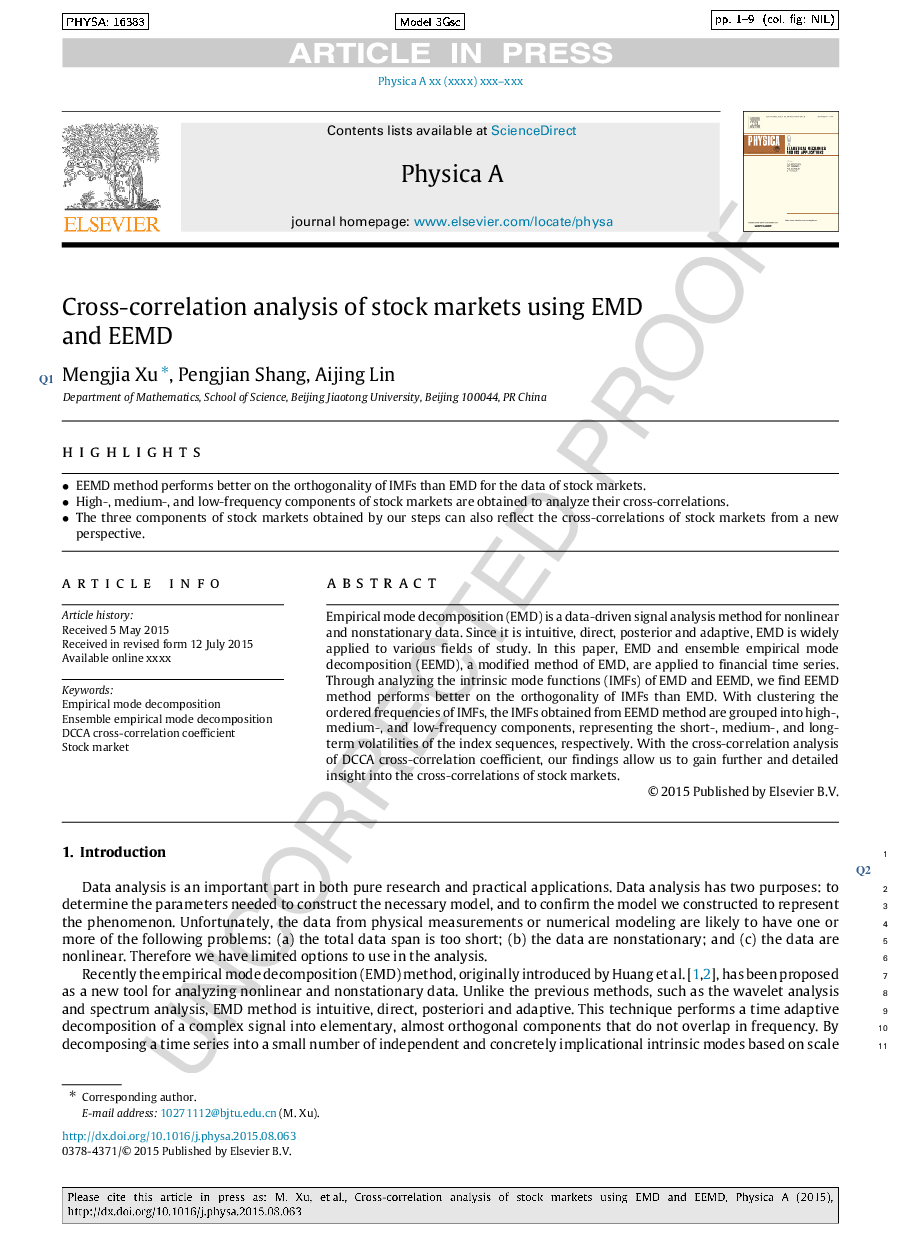| Article ID | Journal | Published Year | Pages | File Type |
|---|---|---|---|---|
| 7379098 | Physica A: Statistical Mechanics and its Applications | 2016 | 9 Pages |
Abstract
Empirical mode decomposition (EMD) is a data-driven signal analysis method for nonlinear and nonstationary data. Since it is intuitive, direct, posterior and adaptive, EMD is widely applied to various fields of study. In this paper, EMD and ensemble empirical mode decomposition (EEMD), a modified method of EMD, are applied to financial time series. Through analyzing the intrinsic mode functions (IMFs) of EMD and EEMD, we find EEMD method performs better on the orthogonality of IMFs than EMD. With clustering the ordered frequencies of IMFs, the IMFs obtained from EEMD method are grouped into high-, medium-, and low-frequency components, representing the short-, medium-, and long-term volatilities of the index sequences, respectively. With the cross-correlation analysis of DCCA cross-correlation coefficient, our findings allow us to gain further and detailed insight into the cross-correlations of stock markets.
Keywords
Related Topics
Physical Sciences and Engineering
Mathematics
Mathematical Physics
Authors
Mengjia Xu, Pengjian Shang, Aijing Lin,
